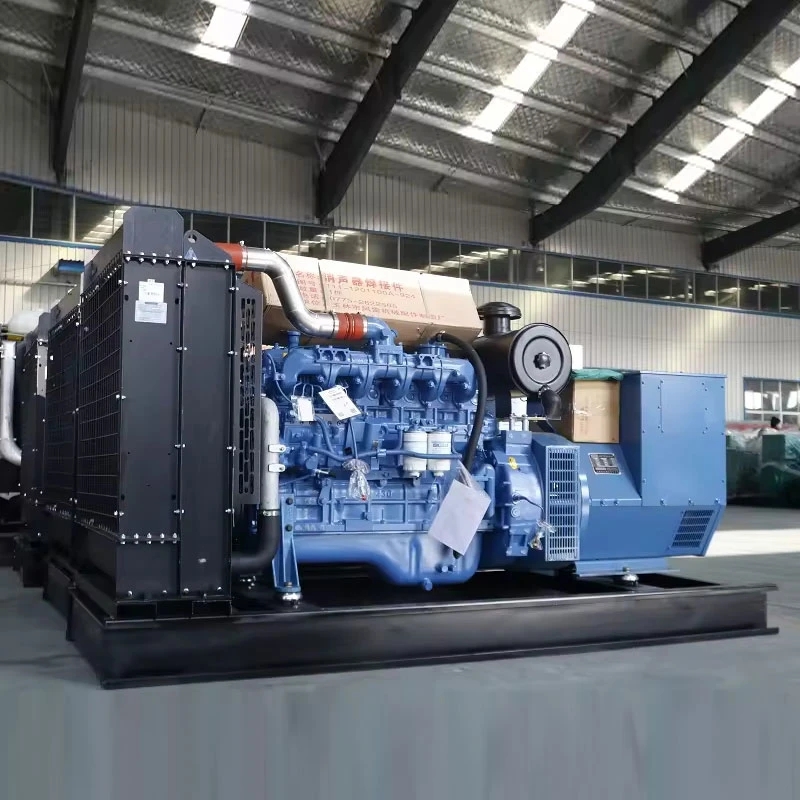Matzen
0 Course Enrolled • 0 Course CompletedBiography
Diesel Generator for Islanding Operation Ensuring Reliable Power Supply in Remote Locations
Introduction
Islanding operation refers to the ability of a power generation system to operate independently from the main grid, providing electricity to a localized area or facility. In remote locations such as islands, where grid connectivity may be unreliable or nonexistent, diesel generators play a crucial role in ensuring a continuous and reliable power supply. This article explores the use of diesel generators for islanding operation, highlighting their benefits, challenges, and key considerations.
Benefits of Diesel Generators for Islanding Operation

1. Reliability: Diesel generators are known for their reliability and robustness, making them well-suited for islanding operation where grid disturbances or outages are common. Diesel engines are capable of providing continuous power output for extended periods, ensuring uninterrupted electricity supply to critical loads.
2. Flexibility: Diesel generators can be easily deployed and operated in remote locations, making them ideal for islanding applications. They can be customized to meet specific power requirements and integrated with other renewable energy sources such as solar or wind power to create hybrid power systems.
3. Fast Start-Up: Diesel generators have the advantage of quick start-up times, allowing them to respond rapidly to changes in power demand or grid disturbances. This capability is essential for maintaining a stable power supply in islanded systems where load variations are common.
4. Fuel Availability: Diesel fuel is widely available and can be stored onsite in large quantities, ensuring fuel supply continuity during extended islanding periods. This makes diesel generators a practical choice for remote locations with limited access to alternative fuel sources.
Challenges of Diesel Generators for Islanding Operation
1. Fuel Dependency: Diesel generators are reliant on a steady supply of diesel fuel, which can be a challenge in remote island locations with limited transportation infrastructure. Ensuring a reliable fuel delivery system is essential to prevent disruptions to power generation.
2. Environmental Impact: Diesel generators emit pollutants such as nitrogen oxides (NOx) and particulate matter, contributing to air pollution and environmental degradation. Implementing emission control technologies and using low-sulfur diesel fuel can help mitigate the environmental impact of diesel generator operation.
3. Maintenance Requirements: Diesel generators require regular maintenance and servicing to ensure optimal performance and reliability. In remote island locations, accessing skilled technicians and spare parts can be challenging, necessitating proactive maintenance planning and inventory management.
4. Cost Considerations: The initial investment and operational costs of diesel generators can be significant, particularly for large-scale islanding systems. Factors such as fuel prices, maintenance expenses, and equipment lifespan should be carefully evaluated to determine the long-term cost-effectiveness of diesel generator deployment.
Key Considerations for Diesel Generators in Islanding Operation
1. Load Sizing: Properly sizing the diesel generator to match the power demand of the islanded system is critical for efficient operation and fuel consumption. Conducting a thorough load analysis and considering peak load scenarios will help determine the appropriate generator capacity.
2. Fuel Management: Implementing a fuel monitoring and management system is essential for tracking fuel consumption, estimating remaining fuel reserves, and scheduling timely refueling operations. Automated fuel level sensors and remote monitoring capabilities can enhance fuel efficiency and reliability.
3. Remote Monitoring and Control: Utilizing advanced monitoring and control systems allows operators to remotely monitor the performance of diesel generators, detect potential issues, and initiate troubleshooting procedures. Remote access capabilities enable real-time data analysis and decision-making for optimized system operation.
4. Integration with Renewable Energy Sources: Combining diesel generators with renewable energy sources such as solar panels or wind turbines can enhance the sustainability and resilience of islanded power systems. Hybrid configurations enable better utilization of available resources and reduce reliance on fossil fuels.
5. Emergency Preparedness: Developing comprehensive emergency response plans and backup power strategies is essential to mitigate risks and ensure continuity of power supply during unforeseen events. Regular testing of backup systems and conducting training drills will enhance preparedness and response effectiveness.
75kw diesel generator for emergency backup play a vital role in supporting islanding operation and providing reliable power supply in remote locations. Their inherent reliability, flexibility, and fast start-up capabilities make them well-suited for islanded systems where grid connectivity is limited or unreliable. Despite facing challenges such as fuel dependency and environmental impact, diesel generators can be effectively managed through proper planning, maintenance, and integration with renewable energy sources. By considering key factors such as load sizing, fuel management, remote monitoring, and emergency preparedness, operators can optimize the performance and efficiency of diesel generators in islanding operation, ensuring uninterrupted electricity supply to critical loads.
